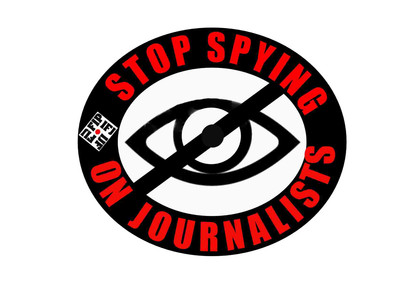Dans la nuit du 25 au 26 mars dernier, l’Assemblée Nationale togolaise adoptait un projet de réforme constitutionnelle promettant un passage « test » vers un régime parlementaire. Le président de la République serait alors élu par une majorité de députés. De fait, ce projet de loi annule les élections prévues en 2025 et donne une dimension toute autre aux Législatives du 20 avril 2024. L’opposition ainsi que des acteurs de la société civile ont dénoncé une tentative de « coup d’état constitutionnel ».
C’est dans ce contexte que Thomas Dietrich s’est rendu au Togo afin de couvrir la révision constitutionnelle et sa contestation.
Le 5 avril, il fait une demande de visa professionnel, qui lui est accordé, ainsi qu’une demande d’accréditation auprès de la Haute Autorité Publique à la Communication (HAAC) : cette seconde autorisation a d’abord été approuvée puis suspendue, la HAAC ayant subitement décidé que le Togo ne délivrait plus d’accréditations dans le cadre des contestations populaires contre la révision constitutionnelle.
Arrivé au Togo le 12 avril, Thomas Dietrich s’est rendu à la HAAC le matin du 15 avril afin de récupérer son accréditation. Il a été arrêté dans les heures suivantes.
Son visa professionnel étant toujours valable, cette arrestation est inacceptable. Elle représente une atteinte intolérable à la liberté de la presse. Il a été expulsé le 16 avril vers le Bénin, après un simulacre de procès. Il est condamné à six mois de prison avec sursis ainsi que cinq ans d’interdiction du territoire togolais pour entrée illégale dans le pays.
Thomas Dietrich signale, en plus de son arrestation des plus brutales, avoir été humilié et fortement malmené durant sa détention et relate un interrogatoire très violent. Privé d’avocat, il explique avoir été frappé et menacé à plusieurs reprises en représailles à la publication récente d’une vidéo consacrée à la situation politique au Togo. Le pouvoir togolais se rend à nouveau coupable d’une atteinte gravissime aux droits de la presse et, surtout, aux droits humains les plus élémentaires.
Thomas Dietrich, qui publie de multiples enquêtes sur la Françafrique, fait l'objet d'un véritable harcèlement policier dans plusieurs pays. Il est constamment surveillé et subit de nombreuses pressions lors de ses déplacements en reportage et il est régulièrement arrêté puis expulsé pour l'empêcher de couvrir l'actualité ou d'enquêter. Les régimes veulent faire payer au journaliste son intégrité et sa rigueur professionnelle, alors même qu'ils n'ont juridiquement rien à lui reprocher, se contentant généralement de l'entraver et de l'expulser sans poursuites pénales.
Le SNJ-CGT et la Fédération Internationale des Journalistes (FIJ) dénonçaient déjà les atteintes au travail de Thomas Dietrich, notamment lors de son arrestation en Guinée en janvier 2024 (lire ici), alors qu'il enquêtait sur la Société Nationale des pétroles, ou encore lorsqu'il était convoqué par la police française après une plainte de l'ancien patron de la police politique tchadienne (lire ici), en représailles à une enquête publiée par Le Média. Thomas Dietrich est par ailleurs soutenu par le SNJ-CGT et la Fédération Européenne des Journalistes (FEJ). Sa famille fait également l'objet de menaces de la part du régime tchadien (lire ici) suite à une série d'enquêtes.
Le SNJ, le SNJ-CGT, la CFDT-Journalistes, le SGJ-FO et la FIJ s’indignent de ces pratiques scandaleuses et appellent les autorités togolaises à respecter la liberté de la presse et les droits humains. "Nous exigeons que Thomas Dietrich puisse circuler et couvrir librement l'actualité au Togo", ont déclaré les organisations.


